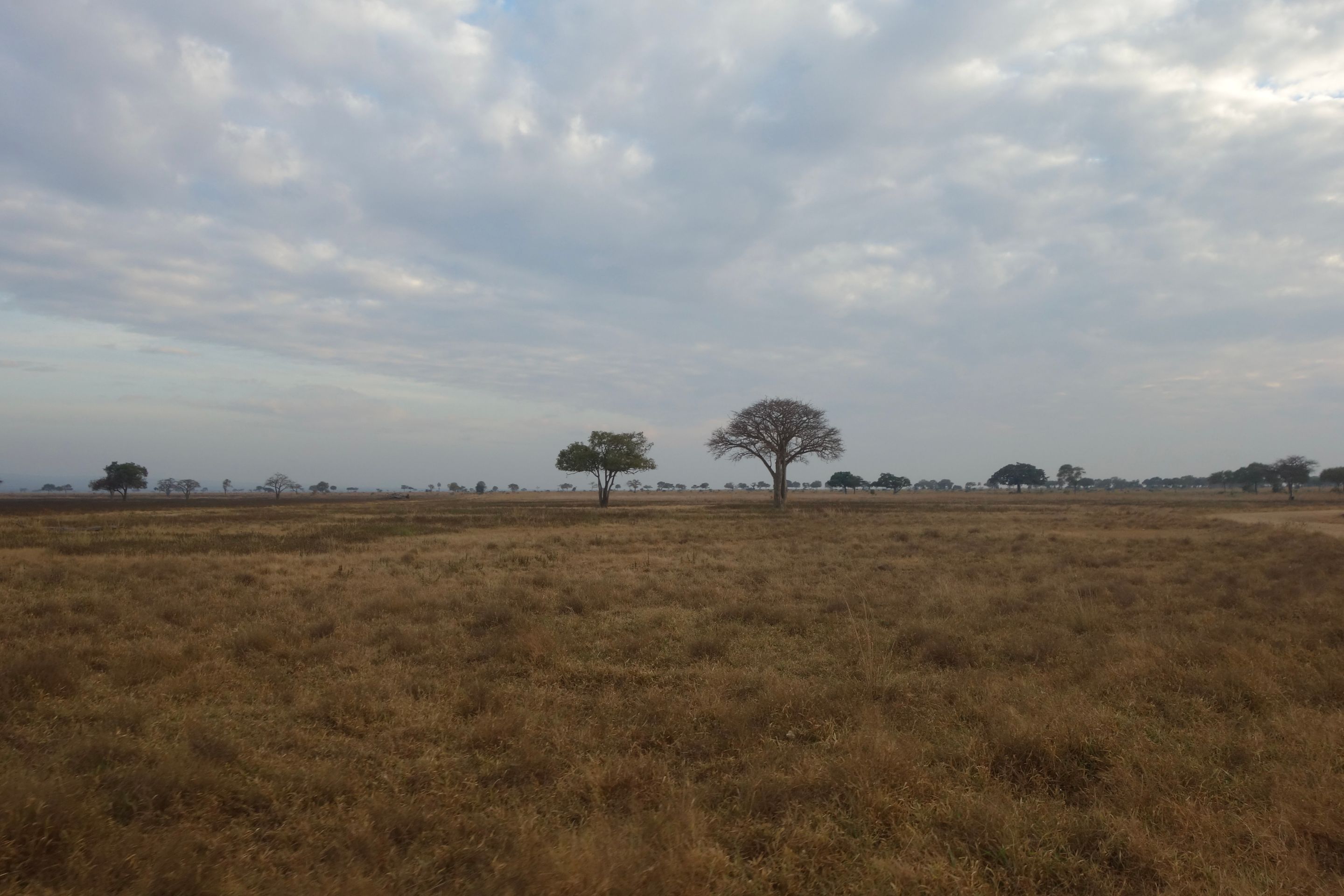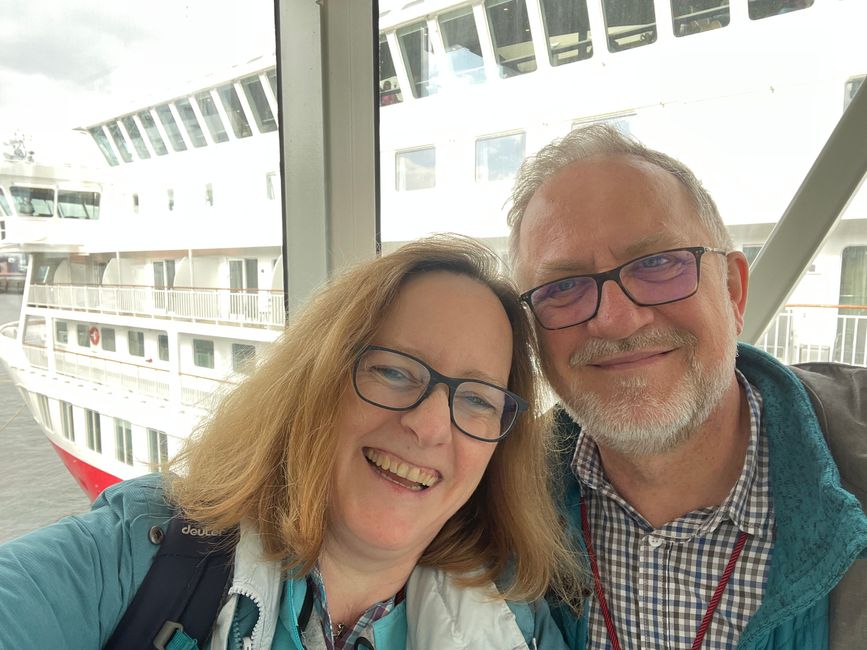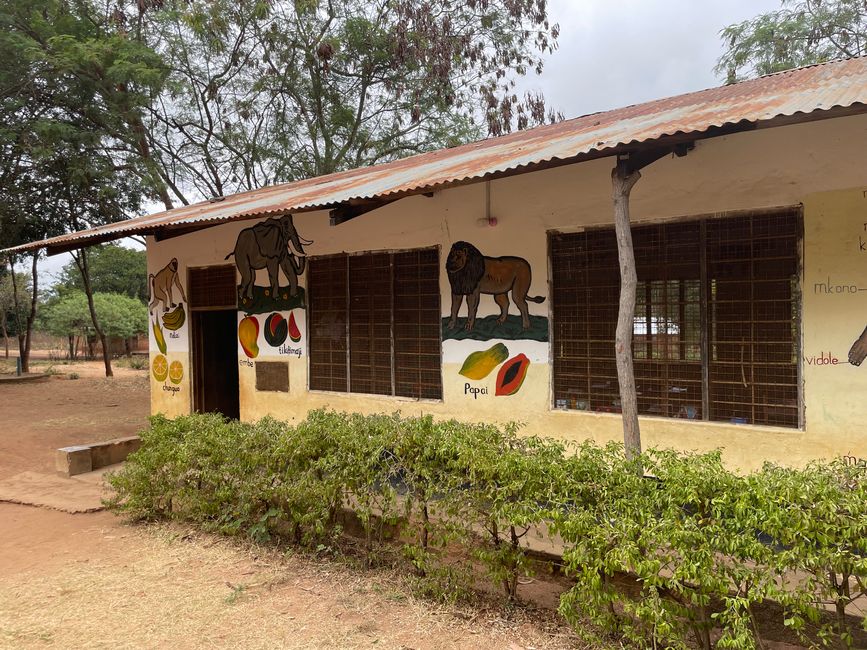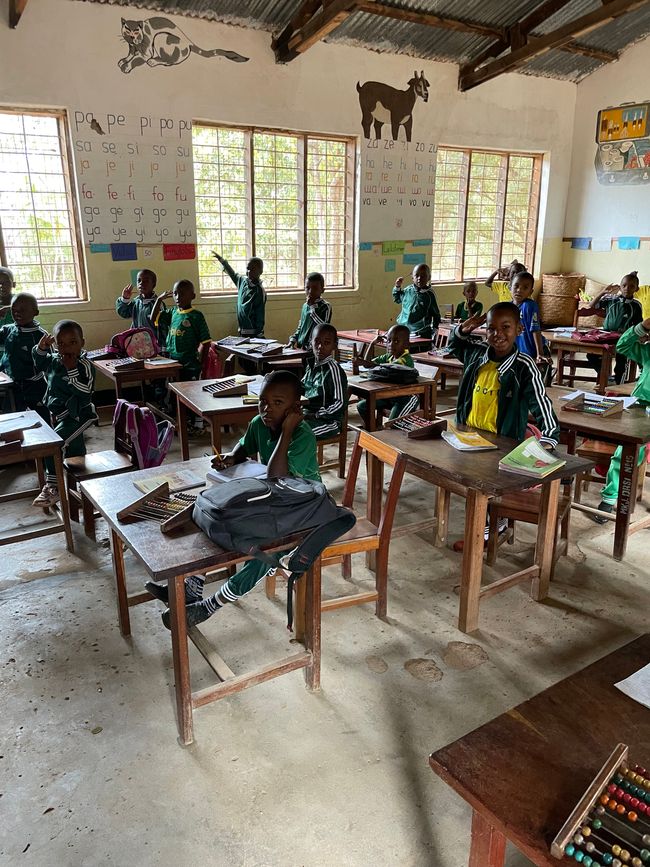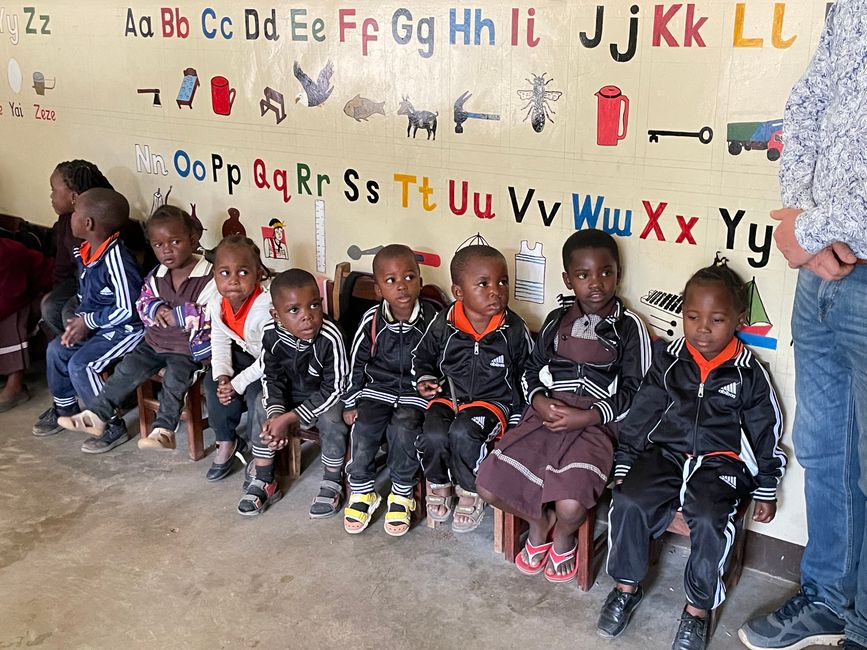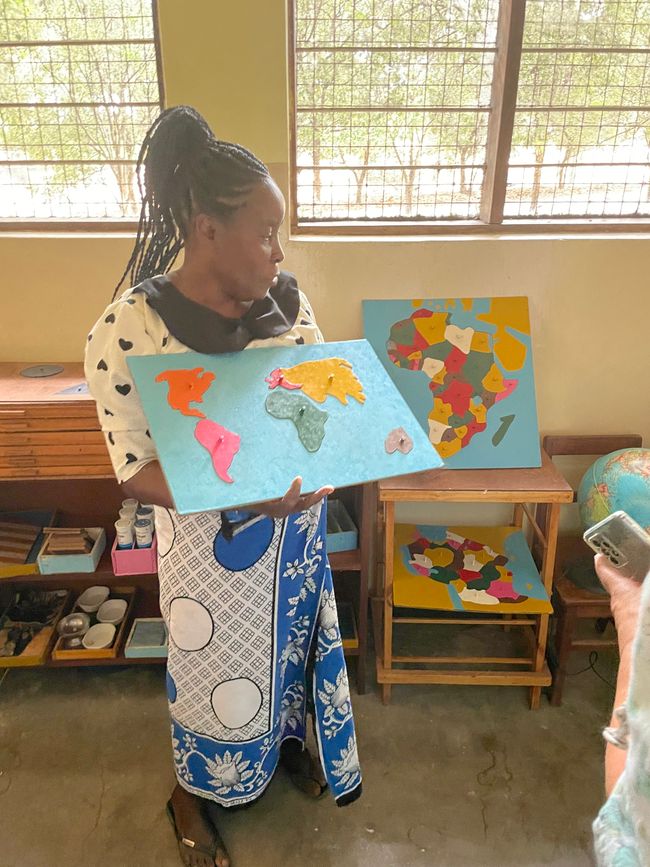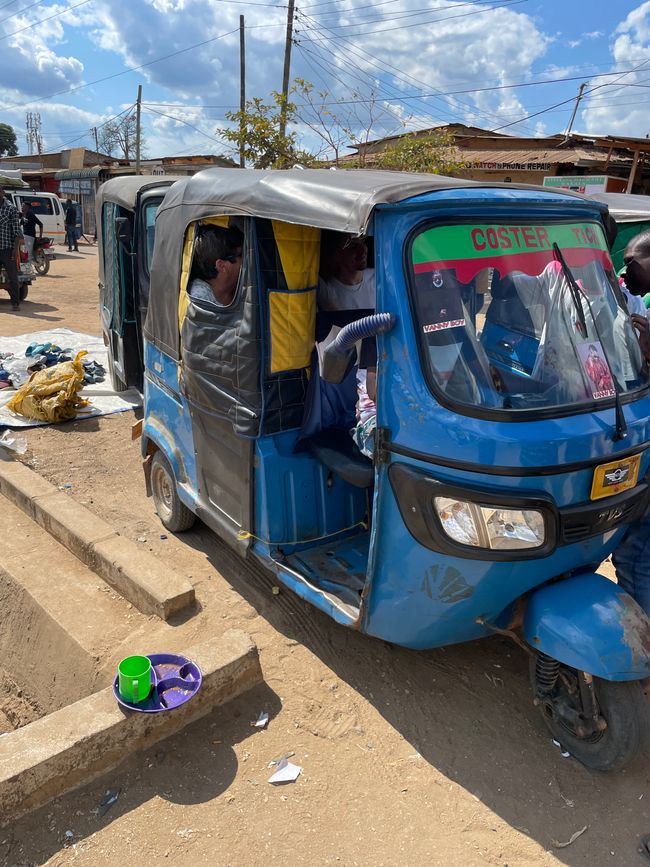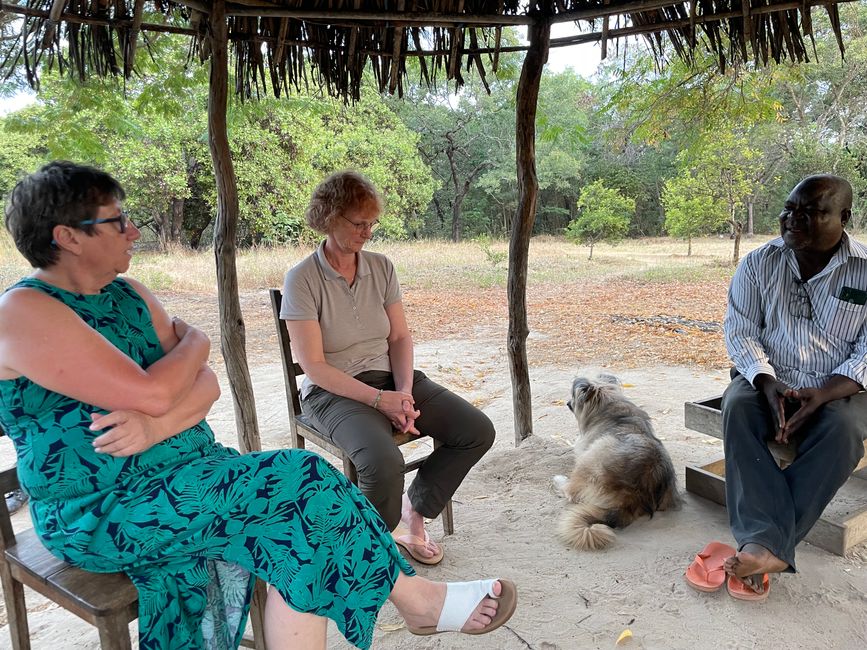Mbesa 2 - and now to Tunduru
Diterbitkeun: 26.07.2024
The next morning we set off first thing in the morning to attend the staff prayer service at the hospital. Afterwards we visit the elementary school and kindergarten.
The primary school was built as a kind of parent initiative, as some of the hospital employees come from other regions of Tanzania and missed a school where the children could also learn something. This was not the case at the local public school. So Helga, who is a teacher, built the school together with a local team. Every year a new building was built for the next grade level. There is a corresponding concept and we are impressed, especially when the hordes of children rush out for recess and school meals. Every school in Tanzania is obliged to provide the children with food in the morning and at lunchtime.
Afterwards we visit the kindergarten next door, which is located in the premises of the former orphanage.
The concept of the orphanage was completely revised and essentially transformed into a social center where the care of half-orphans and orphans in their families is regulated and demanded.
Of course, there are lots of very cute little ones in the kindergarten, and they learn a lot by repeating things in the choir. The very dedicated head teacher, Madame Dora, explains her teaching materials and the principles of Montessori education in detail.
A lot of "KIM" and many tactile learning aids, but the level is sometimes well beyond kindergarten. Since Africans tend to have difficulty with mathematics and consistent logic, this is started early here. Dora also tells us that experts no longer see this in kindergarten, but parents come with these expectations.
Then we go back to the red track and drive to Tunduru, where we eat in the town (Ugali: the corn dumpling with fish and vegetables, as a left-hander you always have to concentrate on eating with the right hand)
Another little experience: some of us drove to Nanjoka in a tuktuk. Would a moped in the form of a delivery van also be an idea for German cities?
In the afternoon we arrive (in the district of) Nanjoka, where the Weiss couple live and where the Bible school is located. A second German couple also lives there, whose main task is the Bible school. We get to know the woman, Silvia Maurer, as her husband is away at the moment. Towards the evening we go to a neighbouring house to visit the head of the Bible school. We introduce ourselves and say hello on the small terrace in front of his house. We meet a friendly, friendly man who unfortunately cannot show us around the school the next day because he is ill.
In the evening we eat delicacies bought at the market and later we meet to sing and exchange ideas.
Waleran
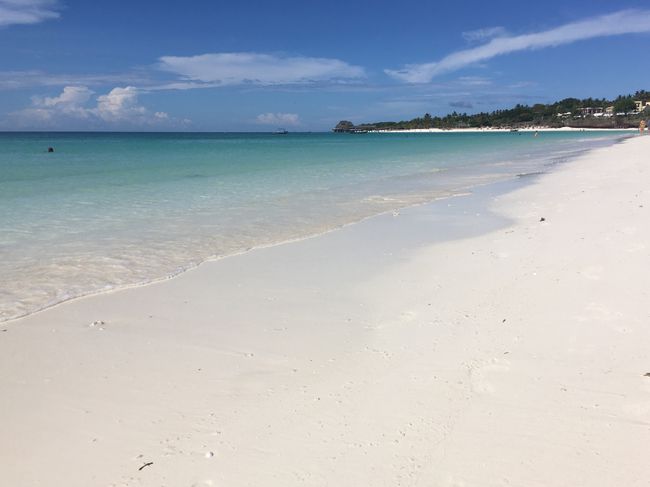
Laporan perjalanan Tanzania
